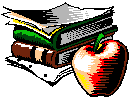 Rethinking
The Academy:
Rethinking
The Academy: Rethinking
The Academy:
Rethinking
The Academy:As interest in virtual environments and electronic departments continues to grow, there will be a need for faculty and administration both to develop and to staff new courses that use electronic environments; of course, one incentive will be the use of these environments as sites for research into new ways of writing and learning, and therefore presentation and publication opportunities for faculty members. There will also be a need to train existing faculty in the methodologies of transferring "traditional" courses already in the curriculum to electronic environments, where such a move is desirable.
The work of such computer-intensive courses would focus not only on the technological but on the rhetorical, on the use of language in cyberspace and in other electronic environments.
As Joseph Tabbi puts it,
. . .I resist the idea of having a course in the English department that is primarily "technical," if that means teaching word processing and programming skills separately from particular writing projects. Once you separate the technique from the literary practice, it becomes very easy to demonstrate how well students are mastering the technique, and then "literary" work begins to seem all the more vague and un-quantifiable by comparison. This appearance of vagueness produces a defensiveness in literary people, who begin to see what they do in opposition to techne, as a work of the soul that cannot be crassly quantified . . . The need to integrate literary and media studies is what makes me think that technical training ought always to be provided as part of a specifically writerly agenda, even (perhaps especially) if our notion of the "literary" must be revised and expanded as a result. (Tabbi)
For instance, Ken McAllister and Keith Dorwick are in the process of developing two such courses for the University of Illinois at Chicago Department of English.
Last Modified: August 2, 1996
Copyright © 1996 by Keith Dorwick